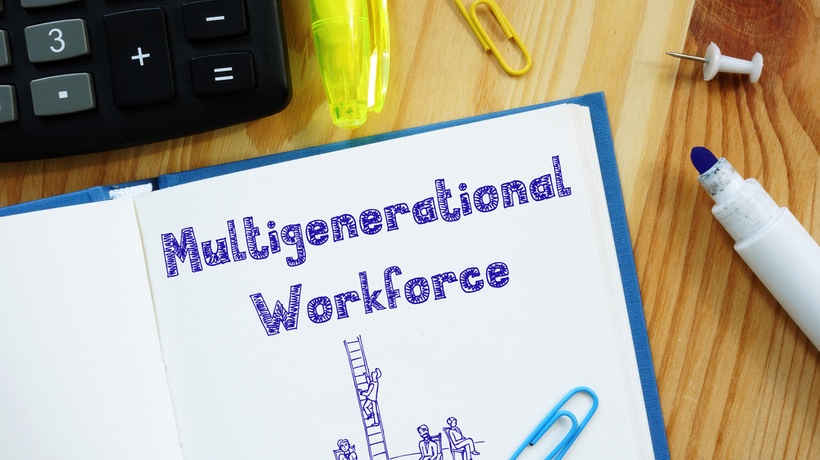How To Fight Change-Resistance With Multigenerational Learning
One of the key challenges faced by modern managers and corporate educators is meeting the diverse needs of the multigenerational staff. Members of different generations will often have varying levels of comfort, if not familiarity, with learning technology and platforms; they may also have widely divergent tolerance for change, which can carry both technological and system disruption. Making the most out of an eLearning initiative in a multigenerational team takes balance: A multigenerational learning approach accommodates the needs of the different generations, while finds a way to capitalize on their respective strengths. When everyone contributes, everyone stands to learn more; and feel more like a unified team.
Age Isn’t The Enemy
It isn’t age that makes people resistant to change, it is comfort. Comfort often comes from familiarity, and age certainly can correlate with familiarity. The longer you’ve been at it, the more likely you are to have accommodated the status quo in your role, industry, and life.
Unfortunately, dynamic industries can be punishing for the comfort of the familiar, and accentuate the differences between members of different generations. In the healthcare field, for example, even the layperson can recognize the discord that can crop up between staff with different contexts for learning, entering, and working in medicine. The result can be as bad for patients as for the staff themselves, so it is up to management to strike a balance.
Fortunately, healthcare is also a perfect example of how harmony can be established among a multigenerational staff: On the one hand, constant change in medical science and technology requires everyone to constantly learn and retrain; on the other hand, having a solid experiential background can help older staff hone their soft skills, a critical component in making any new tech (or new staff) function as part of the system.
Hard Lessons, Soft Skills
Schools routinely fail to prepare graduates for the realities of work--regardless of the industry. Part of the problem is that hard skills--tech savvy, awareness of the latest innovations, fluency in the jargon and history of a sector--often comprise the bulk of a formal curriculum, at the expense of soft skills. Basic communication, work ethic, collaborative problem-solving, and even critical thinking are left to the individual--or, later on, the manager, to develop.
In a multigenerational setting, this can appear to be a skills gap. It is more constructive, however, to use this as a teachable moment. After all, even the newest graduates are subject to the limits of their respective schools and programs--and schools, like any legacy institution, can also be resistant to change and rife with intergenerational conflict. All knowledge has a half-life of relevance and usefulness, so it behooves us to prioritize education in any industry, and any organization.
The key to turning eLearning into intergenerational exchanges lies in adding more social learning elements: Everything from question and answer periods, to mentor partnerships, to group projects and more. It is important that your social learning strategy blend soft skills training with hard skill development. The more casual engagement you foster among the student teams, the more skills exchange you can expect to occur.
Feeling Included
Effective education, like effective management or leadership, takes the emotional needs of students into consideration. At the high school level, research has shown that access to school counselors actually increases college enrollment. The same phenomenon is relevant to the workplace. No one can perform at their maximum potential when their feelings are being routinely denied or neglected.
That doesn’t just mean looking after employees to make sure they are happy at work. Remember that part of change-resistance is rooted in discomfort with the unfamiliar. Staff of all ages and backgrounds can feel threatened when they see their particular skill sets as losing relevance in the face of change--be it systemic, technological, or any other form of change.
Relevance can be an effective avatar for the broader emotional needs of students and employees. If you emphasize to each staff member how he or she has a contribution to make, a lesson to lead as well as to learn, you show that you are investing in the continued relevance of that individual. Integrating emotional support can be as simple as using your eLearning platform not just to train for work-related activities, but to teach coping skills, and create social learning communities that provide support networks and, again, mentor relationships.
Intergenerational exchange in the face of change can show new staff that change is normal, and with the right attitude, any new development is tolerable. It can also give older staff a support pillar so they don’t feel all the pressure to learn and adapt piled on their shoulders. Social learning can make the difference in your eLearning and training programs, ensuring that soft and hard skills alike are part of a multigenerational learning exchange.









